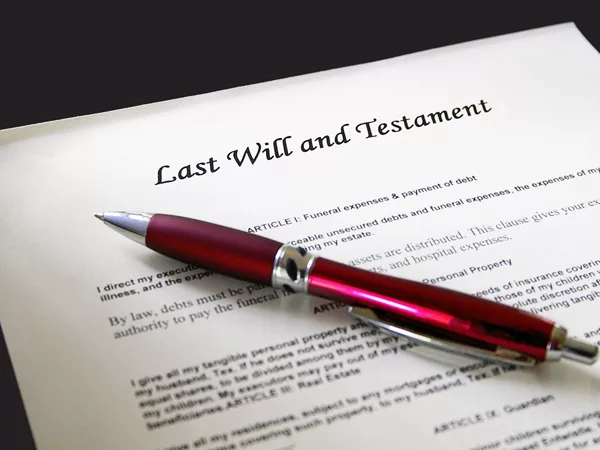Tips on Choosing Your Executor

Choosing your executor or who should serve as your executor is not as simple as many people think.
Your executor is the person tasked to “execute” your wishes after you are gone. Often, clients will name their spouse, then their children from oldest to youngest, as their executor without giving further thought.
However, consider this before choosing your executor and naming these individuals by default.
First, not everyone is eligible to serve as an executor. Texas law has specific rules about who can.
Qualifications of an Executor
For an executor to have authority, your original Will must be submitted to the court with an application to probate it. Probate is the process by which the court determines the Will is valid and the person you named as your executor is, in fact, qualified to serve as such.
To qualify as an executor, the applicant must have never been convicted of a felony, must be a Texas resident (or appoint a registered agent within Texas), and must not have been deemed incapacitated. The judge also has discretion to deny the executorship to “a person whom the court finds unsuitable.”
Even if the person you name meets all the statutory requirements, are they the right person for the job? Serving as an executor often requires a significant time commitment and organizational skills. The settlement of an estate may take several years, depending on the types of assets, the estate’s value, the extent of the debts against the estate, and the complexity of the Will provisions.
Responsabilites of an Executor

An executor is responsible for collecting all the estate’s assets and filing an inventory with the court, assessing all estate expenses and debts, opening an estate bank account, filing tax returns for both the deceased person and the estate, selling property, and distributing assets to the beneficiaries. This process is labor-intensive and oftentimes requires the executor to take a leave of absence from work to handle it.
When choosing your executor, think about the time commitment you’ll be imposing and consider whether your candidate manages their own affairs effectively.
In many cases, an executor does not receive the level of support from the rest of the family they deserve, and are viewed as the barrier between beneficiaries and their money.
Executors Communicating with Beneficiaries
It is essential for an executor to regularly communicate and provide transparency with the beneficiaries during the administration of an estate. When beneficiaries don’t know what is being done, the expected timeline for things to be completed, and the factors affecting the progress of settling the estate, they tend to assume the worst. You will want to choose someone who communicates well and can provide regular updates to the people impacted by your estate.
Choosing Your Executor and a Possible Backup
Also consider that whoever you name as executor is not compelled to serve. It would be wise to discuss the potential role with the individual you are considering so they can weigh in on the decision. While they may be willing now, when the time comes to execute their situation may have changed, making it no longer viable for them to accept the position.
It is vital to name backup executors who can step in if your first-named executor is not able or willing to serve. I recommend documenting at least three potential executors to serve in the order named.
While some believe naming multiple people to serve jointly as co-executors would help divide the work and the responsibilities, it often has the opposite effect by multiplying the burden. When multiple people are named to serve together, all co-executors must be involved in each step, which compounds the amount of time the process takes.
Look to a Professional Fiduciary as Your Executor

If you struggle to identify the right person to be your executor, consider a professional fiduciary, such as a bank or trust company.
Many banks and trust companies offer executor services, but they will require an existing relationship with their institution and a minimum estate value. Inquire with your financial institution about their executor services. Ask them about required minimums, fees, and the process for naming them as your executor.
There are undoubtedly several things to consider when choosing your executor but do not delay establishing your estate plan just because of these considerations.
The most important thing is to get your wishes into a legally enforceable document. You can always make modifications in the future.





